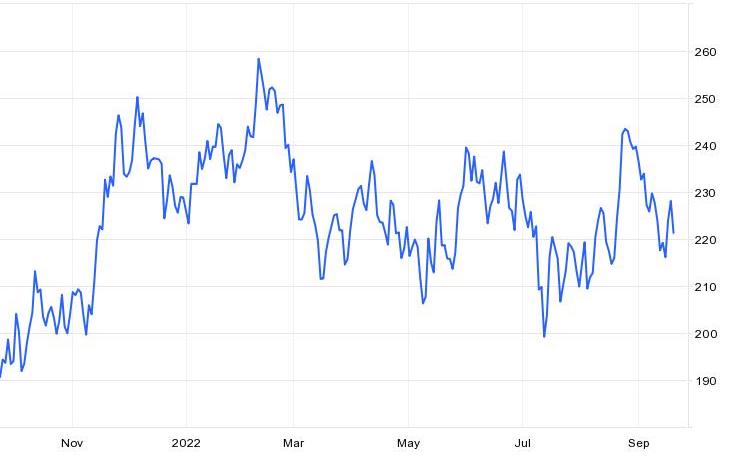Coffee Shortages are Brewing in Brazil with Lower Export Volumes at Higher Prices

Coffee stocks in South America are dwindling at a very fast rate, making the projected coffee reserves dangerously low. With fewer stocks and reserves, global coffee futures prices are rising, and this trend is likely to continue unless market uncertainty is reduced. The primary reason behind rising global prices is supply shortages in Brazil, which is the largest coffee producing country in the world. The situation is pegged to get even worse in the weeks ahead as Brazilian coffee exports hold onto their supplies to drive up prices. Apart from Brazil, weather issues across other arabica producers like Colombia and Honduras are adding to the problem. Even the demand side seems to be shaky, with recession fears, war and the energy crisis in Europe all resulting in lower demand.
It was anticipated that Brazil would harvest a higher crop for the current 2022/23 crop (2022 harvest) given the on-cycle production. This was expected to be a recovery from low levels of production in the 2020/21 crop and the 2021/22 crop, which were severely impacted by unsuitable weather conditions. On the contrary, the coffee crop is still recovering from the extreme frosts of the previous season and perpetually lower rainfall in the coffee-growing regions of the country. According to the third survey released by the Brazilian Ministry of Agriculture, the harvest already reaches 99% of the area destined for the crop, and the estimated volume represents an increase of only 5.6% compared to the 2021 cycle. However, despite the recovery registered, the increase in coffee production is lower than expected for 2022 as it is a year of on-cycle production.
The lower production is pushing the coffee traders to hold large volumes of coffee and wait to start exporting when the prices climb up even more. Due to this, the volumes exported in the first eight months of 2022 are lower than those observed in the same period last year. From January to August 2022, Brazil has already exported around 25.7 million 60 kg bags of green coffee equivalents, a YoY decrease of 9.7%. In terms of revenue, Brazilian coffee exports were worth USD 5.9 billion, a significant increase of 54.3% compared to the same period last year. The average price paid for coffee exported from Brazil has also reached USD 233.58 per bag, which is a YoY increase of 70.4% compared to USD 137.11 per bag during the same period in 2021.
Concerns regarding coffee supply from Brazil have supported the rise in coffee prices in the international market. Even though the current coffee futures prices are lower than the prices observed in the first 3 months of 2022, they are still 14% more than the prices observed during the previous year. There could be some relief in coffee futures prices if Brazil has a good crop and experiences good weather in the coming months. This would reduce the speculation among coffee traders about rising prices in the future and allow them to start exporting at full capacity.
Coffee Future Prices

Source: Trading Economics.






